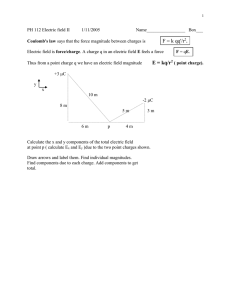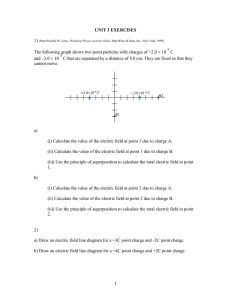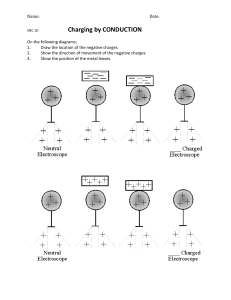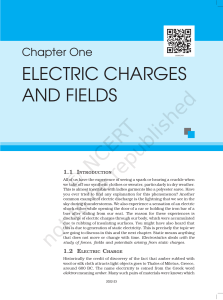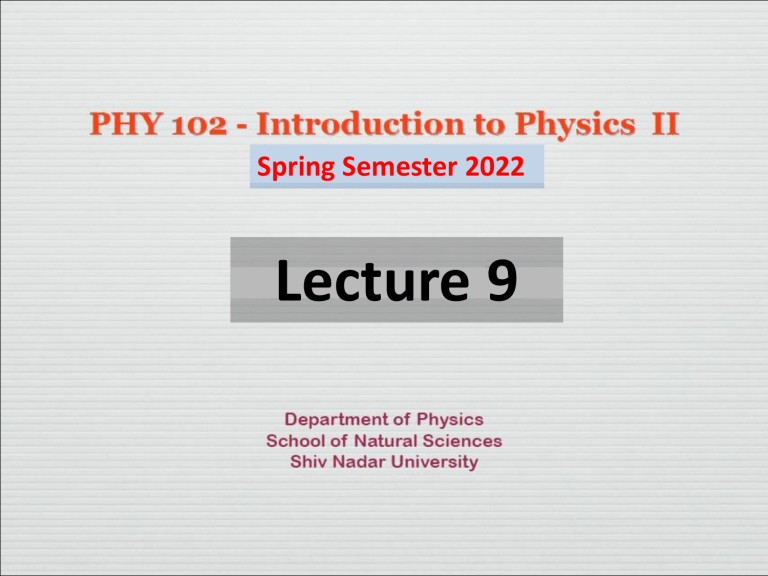
Spring Semester 2022 Lecture 9 Fundamental problem of electrodynamics What force do the ‘source charges’ exert on another charge Q (test charge)? Interaction between any two charges is completely unaffected by presence of others To determine the force on Q, compute force F1 due to q1 alone (ignoring all others), F2 due to q2 alone and so on. 𝑭 = 𝑭𝟏 + 𝑭𝟐 + 𝑭𝟑 + ⋯ . Principle of superposition- total force on charge Q equals vector sum of all individual forces F depends not only on ‘r’ but also on velocity and acceleration of charge q (only during motion) Coulomb’s Law Force on a test charge Q due to a single point charge q, that is at rest, at distance ‘𝓇’ away is 𝑞𝑄 ෝ 𝑭= 𝓻 2 4𝜋𝜖0 𝓇 𝓻 = 𝒓 − 𝒓′ 2 𝐶 𝜖0 = 8.85𝑥10−12 𝑁𝑚2 (permittivity of free space) r F = repulsive when q and Q are of same sign r' Coulomb’s law + Principle of Superposition = Physical input for electrostatics. Electric Field Several point charges q1, q2, ….., qn at distances 𝓇1 , 𝓇2 , … 𝓇𝑛 from P (principle of 𝑭 = 𝑭𝟏 + 𝑭 𝟐 + 𝑭𝟑 + ⋯ superposition) = 1 4𝜋𝜖0 𝑞1 𝑄 𝑞2 𝑄 𝑟 ෝ + 𝑟ෝ + ⋯ 𝓇1 2 1 𝓇2 2 2 = 𝑄𝑬 (Electric field of the source charges) Force on charge Q is charge Q times the electric field produced by all different charges at P. E is a vector quantity, varies from pointto-point, determined by configuration of source charges. It is the force acting on a unit charge placed at field-point P Find the electric field a distance ‘z’ above the midpoint of a straight line segment of length 2L that carries the uniform line charge λ METHOD 1 The simplest method is to chop the line into symmetrically placed pairs at ±𝑥 and integrate 𝑥: 0 → 𝑙. But a more general approach may also be followed as shown below: METHOD 2
